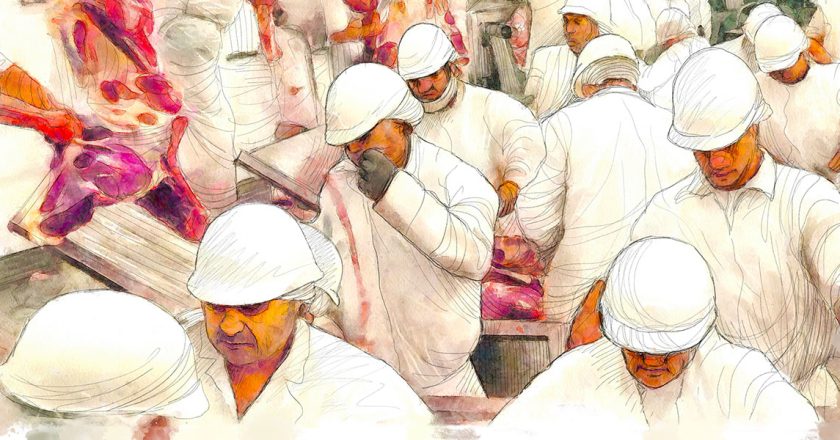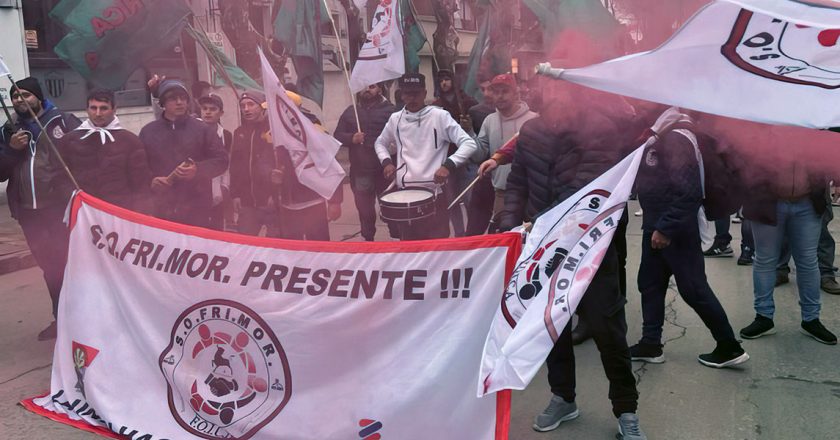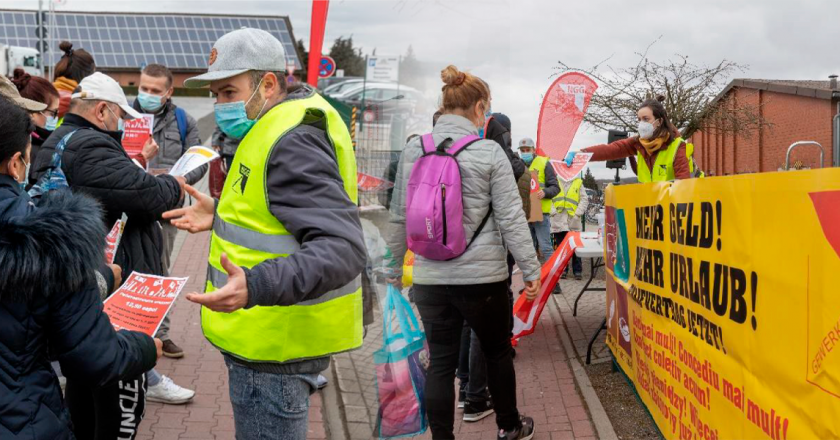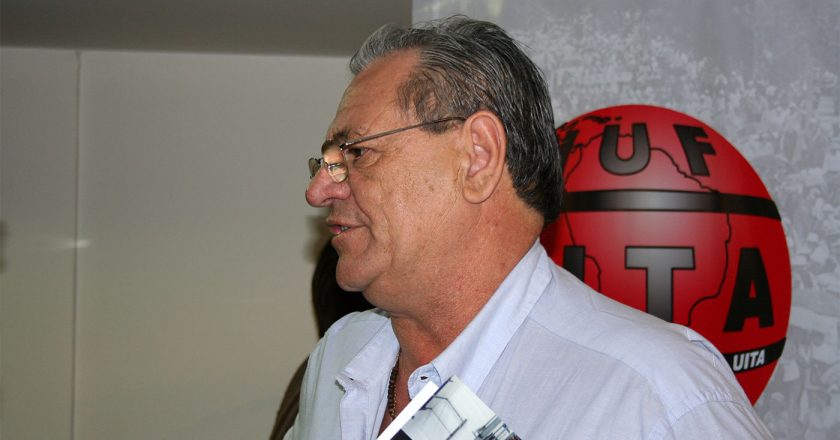Brazil | MEATPACKING | JBS A video in its own image and likeness Terminator JBS The largest meat producer in …


Brazil | MEATPACKING | JBS A video in its own image and likeness Terminator JBS The largest meat producer in …

Uruguay | TRADE UNIONS | MEATPACKING Beef concentrate Minerva now set to call all the shots The Brazilian food industry giant …

Last Friday, November 11, the IUF Latin American Regional Office (Rel UITA) delivered a letter from the European Federation of Food, Agriculture and Tourism Trade Unions (EFFAT) to the president of Uruguay, Luis Lacalle Pou.

Uruguay | TRADE UNIONS | MEATPACKING In response to wrongful dismissals at Frigocerro FOICA takes action Amalia Antúnez 05 | …

Last Friday, July 29, at a tripartite meeting, the Federation of Meat Industry Workers (FOICA) hoped to reach an agreement with the meatpacking company Frigocerro following the arbitrary dismissal of two union leaders.

In 2020, some ten to twenty thousand indigenous workers were employed in Brazil’s meatpacking plants. The NR36, a norm that regulates health and safety conditions in that industry, cannot be modified without first consulting the indigenous communities that will be affected by any proposed changes. However, indigenous activist and lawyer Fernanda Kaingáng told La Rel that this revision was presented out of the blue, without prior discussion, thus violating the obligation to consult the indigenous peoples concerned, as stipulated by ILO Convention 169.

Walter Jonathan Bartholin Lillo, trabajador de Unilever-ID Logistic (subcontratada por Unilever), murió el 15 de junio producto de un grave accidente del trabajo durante su labor y la transnacional no se hace cargo del hecho ni lo ha comunicado formalmente. Es una de las consecuencias del proceso de externalización y precarización del trabajo emprendido desde hace tres años en Chile por la firma de origen angloholandés.

Last April 7, in a meeting of European and Brazilian labor organizations that represent meat industry workers, Peter Schmidt, of the German Food, Beverages and Catering Union (Gewerkschaft Nahrung-Genuss-Gaststätten, NGG), declared: “Trade union actions against workforce casualization in meatpacking plants in Brazil and Germany are part of the same struggle.

A subcommittee on the coronavirus crisis formed by members of the new United States Congress has launched an investigation into widespread Covid-19 cases and deaths in several of that country’s meatpacking plants.

On July 1st, the IUF’s Meat Industry Division held a teleconference with the participation of some 40 union leaders from the sector. Alberto Fantini, secretary general of Argentina’s Labor Federation of Meat and Meat Byproduct Industry Workers, reported on the situation in the sector and the COVID-19 pandemic. Below are the key points of his presentation.